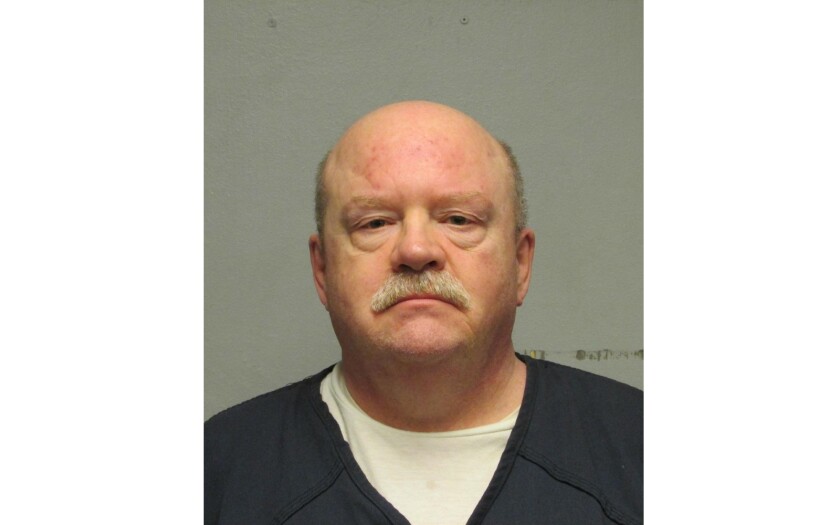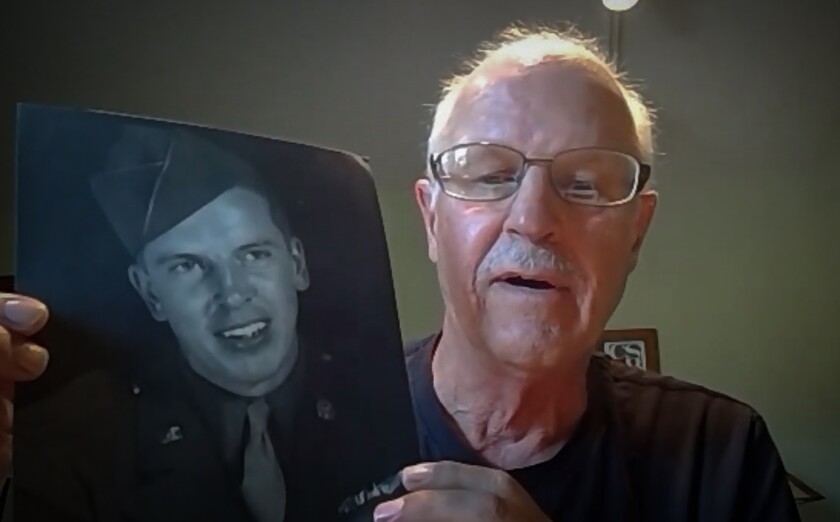VIRGINIA, Minn. — Defense attorneys on Monday, June 30, asked a judge to once again overturn a Chisholm, Minnesota, man’s conviction for raping and murdering a woman nearly 40 years ago.
Michael Allan Carbo Jr., 57, was — the second time a jury has convicted him in the homicide case that had gone cold until a DNA breakthrough in 2020.
ADVERTISEMENT
Carbo previously had a guilty verdict overturned by the Minnesota Supreme Court, which said he was denied a full defense because he was not allowed to argue that another man was responsible for the crime.

This time, his motion involves another potential suspect in the case, as well as the decades-long interval between the crime and the trial.
“Mr. �䲹������’s ability to fairly defend himself in this case was irrevocably compromised by the 34-year delay between the offense and the prosecution,” attorneys J.D. Schmid and Bruce Williams argued. “That the prosecution acted diligently in their investigation and in bringing charges against Mr. Carbo does not negate the prejudice caused by the deaths of several potential witnesses and the faded memories of other witnesses, including Mr. Carbo.”
Carbo, who was 18 at the time of Daugherty’s death and lived about a mile away, was as the man who left semen at the crime scene.
The defense, however, noted the deaths of numerous investigators and witnesses, which they say impaired his ability to investigate the facts and identify alternative perpetrators. The passage of time also forced witnesses to rely heavily on previous statements rather than actual memories, they said.
But St. Louis County prosecutors Chris Florey and Jon Holets noted the state, too, was challenged by the passage of time and the loss of witnesses who could have provided favorable testimony. Noting Carbo was never a suspect until 2020, they said there was no deliberate delay in bringing him to trial, and he had no reason to face anxiety until his arrest.
“(Carbo) provided nothing more than speculation as to how their deaths impacted his ability to present his defense,” the prosecutors wrote in a brief. “To the contrary, defendant did not challenge the presence of his DNA at the scene of the crime; in fact, he conceded it.”
ADVERTISEMENT
The other central issue relates to Daugherty’s then-estranged husband, Jim Daugherty. It has long been reported that he was in Germany with the Minnesota Air National Guard when she was killed.
But the defense attorneys say documents provided during the trial do not conclusively show that he was overseas during the crime, and both the state and federal governments were subsequently unable to provide records establishing that he was.
The attorneys say numerous people told investigators that Jim Daugherty was abusive toward his wife and that his truck may have been spotted near her home the day before she was killed.
They also noted at least two other people who could have been investigated, including a man who allegedly confessed to another person over drinks and a woman who played recreational sports with Daugherty and was reported to have an “obsession” with her.
The prosecutors called Jim Daugherty’s service records “admittedly confusing” but said they do not disprove that he was in Germany at the time. They added that there was no clear evidence that he was in Chisholm and noted how the defense also failed to seek out the records in a timely manner.
“For some reason,” Florey and Holets told the court, “defendant now appears to pivot to a strategy of methodically pointing his finger at any person that was alive in July 1986 that is mentioned in the voluminous police reports, who, based on rampant rumor and wild speculation could have committed (Daugherty’s) rape and murder, except for himself.”
Judge Robert Friday noted at Monday’s hearing that there is no statute of limitations on murder, but he suggested there may be a need for courts to review whether a defendant’s due process rights are violated by a lengthy delay in being brought to trial.
ADVERTISEMENT
�䲹������’s case is almost certainly not the last cold case that will be revived in Minnesota, the judge said. And as forensic technology advances, so does research on the impacts of memory over time.
“Not setting up a bright-line rule,” the judge said of the hypothetical case law, “but it would need to be very fact-dependent, according to the circumstances.”
As for the suggestion of another suspect, Friday said he was not particularly concerned about when the information was discovered. Instead, the judge said, he needs to consider whether he would have allowed the evidence to be admitted if it had been known before the trial.
“What would the court have done with it?” he asked.
�䲹������’s because Friday did not allow the defense to contend that Daugherty’s friend and former lover, Brian Evenson, was the true perpetrator. The defense and additional evidence was admitted, but a unanimous 12-member jury still convicted Carbo.
He faces a mandatory life sentence with the possibility of parole after 17 years, under the law that was in effect for first-degree murder at the time.
Friday has three options: acquit Carbo and end the case, order a new trial, or deny his motion and proceed to sentencing. He has 90 days to issue a ruling, but suggested he intends to act sooner.



















